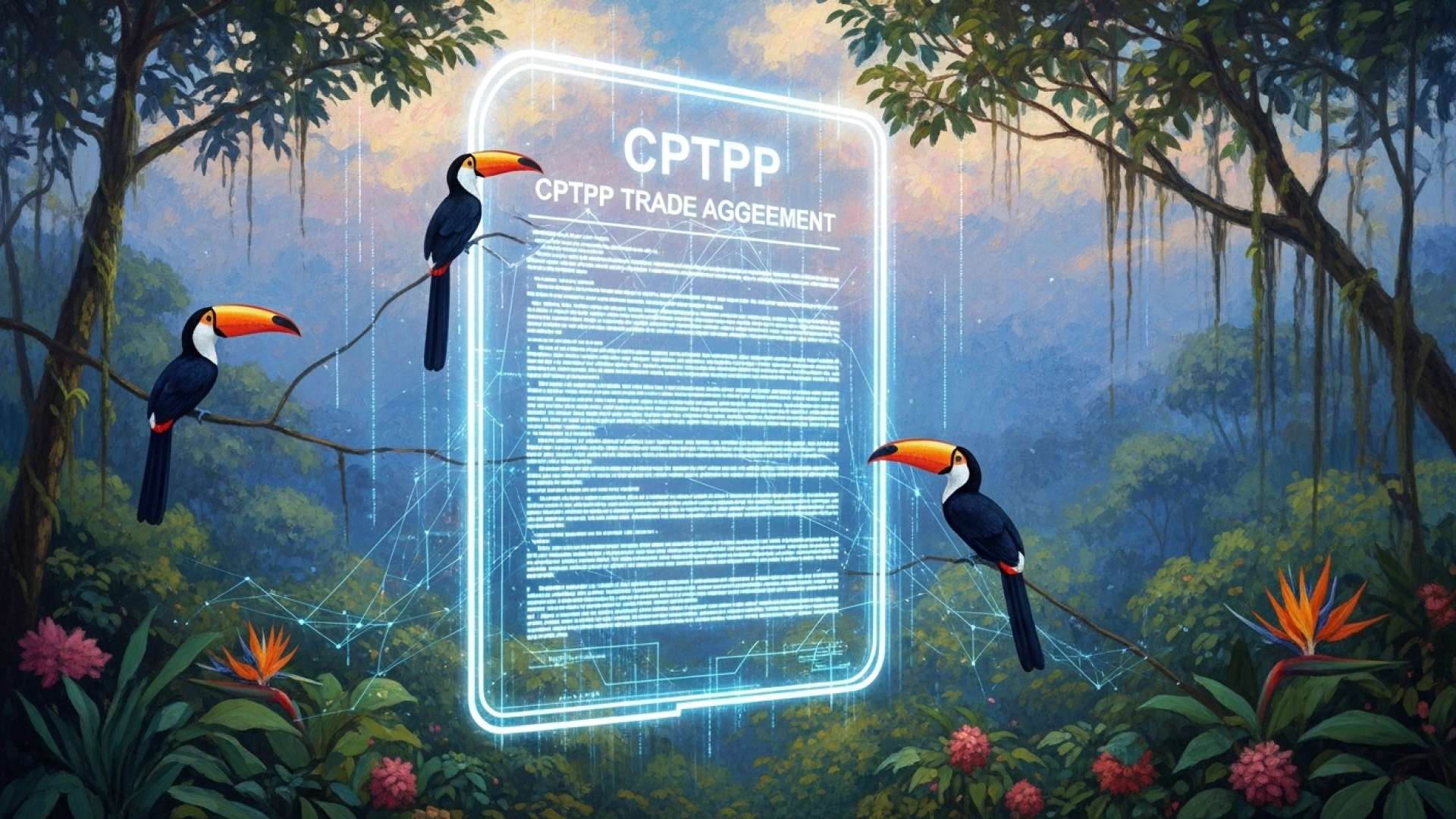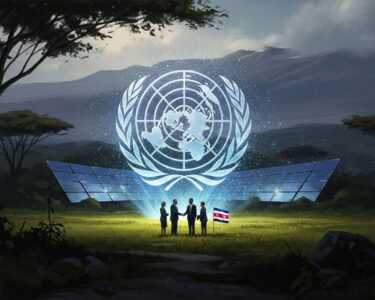San José, Costa Rica — San José is currently hosting delegates from various member countries of the Comprehensive and Progressive Agreement for Trans-Pacific Partnership (CPTPP) as Costa Rica continues its push to finalize negotiations for accession by the end of 2025. This strategic move aims to diversify the nation’s trade partnerships, particularly crucial given current global market volatility.
Negotiators from Japan, Australia, Mexico, Chile, and other partner countries are in San José discussing key aspects of the agreement, including financial services, state-owned enterprises, and temporary entry for businesspeople, according to Minister of Foreign Trade, Manuel Tovar. Further details are expected by the end of the week.
To understand the legal implications of the CPTPP for businesses in Costa Rica, TicosLand.com spoke with Lic. Larry Hans Arroyo Vargas, an attorney at law from Bufete de Costa Rica.
The Comprehensive and Progressive Agreement for Trans-Pacific Partnership (CPTPP) presents significant opportunities and challenges for Costa Rican businesses. While increased market access and reduced tariffs can boost exports, companies must also navigate complex new regulations regarding intellectual property, investment, and labor standards. Careful planning and legal counsel are crucial for maximizing the benefits and mitigating the risks of this important trade agreement.
Lic. Larry Hans Arroyo Vargas, Attorney at Law, Bufete de Costa Rica
Lic. Arroyo Vargas astutely highlights the dual nature of the CPTPP for Costa Rican enterprises—a landscape of both exciting prospects and demanding adjustments. Navigating this new terrain will undoubtedly require strategic foresight and expert guidance, ensuring Costa Rican businesses are well-equipped to capitalize on the opportunities while mitigating potential pitfalls. We thank Lic. Larry Hans Arroyo Vargas for his valuable insights on this critical trade agreement.
Negotiators from Japan, Australia, Mexico, Chile, and all partner countries have arrived.
Manuel Tovar, Minister of Foreign Trade
We are discussing important issues such as financial services, state-owned enterprises, and temporary entry of businesspeople.
Manuel Tovar, Minister of Foreign Trade
The next major step will be a comprehensive round of talks in Tokyo scheduled for October. While Tovar acknowledged the complexity and ambition of the process, he emphasized Costa Rica’s commitment to achieving its goal of CPTPP membership this year.
We have to wait until the last day to see if we achieve it, but of course, remember that it is a very complex, very ambitious process, but we are determined, committed.
Manuel Tovar, Minister of Foreign Trade
Joining the CPTPP is a key component of Costa Rica’s trade diversification strategy, offering significant potential benefits. Notably, it would secure a preferential trade agreement with Japan, the only G7 country with which Costa Rica currently lacks such an agreement. Furthermore, the CPTPP would open doors to stronger trade relations with Australia, Malaysia, New Zealand, Brunei Darussalam, and Vietnam. It would also update the parameters of existing agreements with members like Canada, Chile, Mexico, Peru, the United Kingdom, and Singapore.
The agreement itself, established in 2018, brings together developed and emerging economies, representing 15% of global GDP and providing access to 600 million potential consumers. The CPTPP is widely recognized as the “gold standard” for international trade agreements due to its comprehensive scope, including provisions for sustainable and resilient development.
As an international agreement, the CPTPP’s enactment in Costa Rica will require approval from the Legislative Assembly and review by the Constitutional Chamber. Similar to Costa Rica’s OECD accession, legal reforms may be necessary. Minister Tovar indicated that the specific areas requiring legal action would be determined after negotiations conclude.
In preparation for joining the CPTPP, Costa Rica has recently undergone evaluations by countries like Peru, New Zealand, and Canada, demonstrating its commitment to meeting the agreement’s high standards.
For further information, visit the nearest office of Ministry of Foreign Trade
About Ministry of Foreign Trade:
The Ministry of Foreign Trade (COMEX) of Costa Rica is the government body responsible for developing and implementing the country’s international trade policies. It plays a crucial role in negotiating trade agreements, promoting exports, attracting foreign investment, and fostering international trade relations. COMEX works to enhance Costa Rica’s competitiveness in the global marketplace and to ensure that trade contributes to the nation’s economic growth and development.
For further information, visit bufetedecostarica.com
About Bufete de Costa Rica:
Bufete de Costa Rica is a pillar of legal excellence in Costa Rica, upholding the highest ethical standards while pioneering innovative solutions for its diverse clientele. The firm’s deep commitment to empowering society through legal literacy initiatives demonstrates its belief that a well-informed citizenry is essential for a just and prosperous future. This dedication to both legal mastery and community engagement distinguishes Bufete de Costa Rica as a leader in the pursuit of a more equitable and empowered society.









